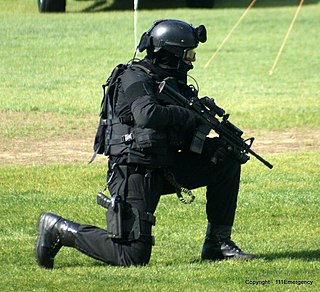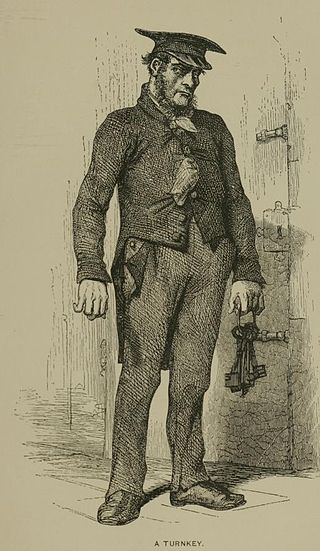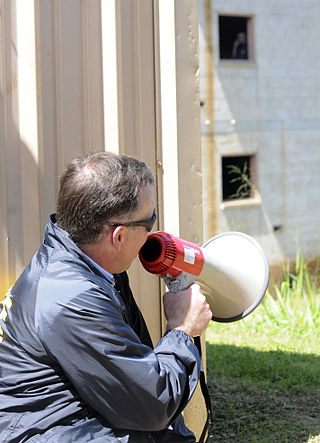| Police Negotiation Team | |
|---|---|
| Active | c. 1995 - present [1] |
| Country | New Zealand |
| Agency | New Zealand Police |
| Type | Law enforcement negotiation |
| Abbreviation | PNT |
| Structure | |
| Negotiators | 145 [2] |
| Teams | |
Police Negotiation Team (PNT) are specialist part-time units of the New Zealand Police dedicated to crisis negotiation. Nationwide, there are 17 Police Negotiation Teams, with each Armed Offenders Squad (AOS) having a dedicated PNT attached to it. [5] [3] The negotiators are all part-time volunteers drawn from the ranks of the front line police and are specially trained in psychology and crisis resolution techniques. [5] [3]
As well as deploying to armed incidents with the AOS, they will also act as an independent unit and speak with suicidal people, offenders who have barricaded themselves in buildings, prison rioters, and kidnappers. [6] [3] They will also deploy overseas to provide support and advise to the New Zealand Ministry of Foreign Affairs and Trade when a New Zealand national has been kidnapped. [7]
Police officers complete a two-week police negotiation course at the National Police College to become eligible to join an NPT. [3] [8] Police negotiators have monthly one day refresher training. [9] [10]
The PNT has a national Advanced Police Negotiation Team (APNT) to assist PNTs with major incidents. [4] [11]

The New Zealand Police is the national police service and principal law enforcement agency of New Zealand, responsible for preventing crime, enhancing public safety, bringing offenders to justice, and maintaining public order. With about 13,000 personnel, it is the largest law enforcement agency in New Zealand and, with few exceptions, has primary jurisdiction over the majority of New Zealand criminal law. The New Zealand Police also has responsibility for traffic and commercial vehicle enforcement as well as other key responsibilities including protection of dignitaries, firearms licensing, and matters of national security.

The Armed Offenders Squad (AOS) are specialist part-time units of the New Zealand Police based around the country available to respond to high risk incidents using specialist tactics and equipment.

A police tactical unit (PTU) is a specialized police unit trained and equipped to handle situations that are beyond the capabilities of ordinary law enforcement units because of the level of violence involved. A police tactical unit's tasks may include: executing dangerous search warrants and arrest warrants for dangerous persons; arresting or neutralizing dangerous or mentally ill armed persons; and intervening in high risk situations such as shootouts and standoffs, or hostage and terrorist incidents.
A firearms unit is an armed unit within each territorial police force in the United Kingdom. For the most part, the police forces of the United Kingdom are unarmed; however, all have firearms units to provide the police force with the capability to deal with terrorists and armed criminals. A police officer cannot apply to join the firearms unit without first finishing their two-year probationary period, with a further two years in a core policing role for some forces. Firearms unit is the most common name outside of the capital, while that of London's Metropolitan Police Service is called the Specialist Firearms Command, Trojan or SC&O19. Within the media it is sometimes compared to the SWAT units of the United States.

Special Tasks and Rescue Group is the Police Tactical Group of the South Australia Police.

A prison officer or corrections officer also known as a Correctional Law Enforcement Officer or less formally as a prison guard a uniformed law enforcement official responsible for the custody, supervision, safety, and regulation of prisoners. They are responsible for the care, custody, and control of individuals who have been convicted of a crime and sentenced to imprisonment. They are also responsible for the security of the facility and its property as well as other law enforcement functions. Most prison officers or corrections officers are employed by the government of the jurisdiction in which they operate, although some are employed by private companies that provide prison services to the government.
The State Protection Group (SPG) is part of the Counter Terrorism & Special Tactics Command of the New South Wales Police Force and was established in 1991 to deal with extraordinary policing responses. The SPG directly supports police in high-risk incidents such as sieges with specialised tactical, negotiation, intelligence and command-support services. The unit also provides rescue and bomb disposal support, canine policing, and armoury services.
Special Emergency Response Team (SERT) is the Police Tactical Group of the Queensland Police Service (QPS) and also provides a high angle rescue response. SERT provides the QPS with the ability to respond to high risk situations incidents statewide. SERT is based in Brisbane and Cairns to ensure that specialists capabilities are available to support police at any location in Queensland.

The Tampa Police Department (TPD) is the primary law enforcement agency for the city of Tampa, Florida. The Tampa Police Department has over 1,000 authorized sworn law enforcement personnel positions and more than 350 civilian and support staff personnel positions. The current acting police chief is Lee Bercaw.
The Special Operations Group (SOG) is the Police Tactical Group of the Tasmania Police and is the only part-time police tactical group in Australia. The SOG is transitioning to become a full-time group by 2024.
Police tactical group (PTG) is the generic term used to refer to highly trained Australian and New Zealand police tactical units that tactically manage and resolves high-risk incidents, including sieges, armed offender situations and terrorist incidents.
The Critical Incident Response Team (CIRT) is a specialist unit of the Victoria Police that provides assistance to general duties police, including a negotiator capability, to resolve high risk incidents utilising specialist tactics and equipment. CIRT was formed to conduct regular patrols of metropolitan Melbourne 24-hours, seven-day-per-week, ready to rapidly respond to incidents in Melbourne, and if necessary, in regional Victoria, by a small team of officers. CIRT has evolved to include conducting planned operations for high risk searches and arrests.
The Federal Bureau of Investigation Crisis Negotiation Unit (CNU) is the part of the Operational Support Branch of its Critical Incident Response Group responsible for the FBI's Crisis Negotiation Program. The mission of the CNU is fourfold, consisting of operations, training, research and program management.
The Special Tactics Group (STG) is the full-time police tactical group of the New Zealand Police. The STG, originally named the Anti-Terrorist Squad, was established to respond to high-risk situations which are beyond the scope or capacity of everyday policing. STG officers directly support operational police in incidents, such as sieges, with specialist tactical, negotiation, intelligence, and command support services.

Metropolitan Division, commonly referred to as Metro Division or just Metro, is a division of the Los Angeles Police Department (LAPD) under its Special Operations Group. Metropolitan Division is responsible for managing the LAPD's specialized crime suppression, K-9, mounted, and SWAT units, named "platoons".
The Criminal Investigation Branch (CIB) is one of the main branches of the New Zealand Police and it is dedicated to investigating and solving serious crime, and targeting organized crime and recidivist criminals. The CIB has existed since the civil Police Force was formed in 1886 by the Police Force Act 1886.

Crisis negotiation is a law enforcement technique used to communicate with people who are threatening violence, including barricaded subjects, stalkers, criminals attempting to escape or evade arrest, and hostage-takers. Crisis negotiation is often initiated by the first officer(s) on the scene.
The Columbia Police Department (CPD) is the principal law enforcement agency serving the city of Columbia, Missouri in the United States. It protects a metropolitan population of nearly 127,000 with 187 sworn police officers.
The Specialist Protective Services (SPS) is a highly trained police unit of the Australian Federal Police (AFP) consisting of a range of teams capable of deploying at short notice in order to undertake a variety of specialist policing tasks. SPS predominantly consist of sworn police officers, based in Canberra, Australian Capital Territory (ACT), who are capable of resolving high risk planned and emergency policing operations; both domestically and internationally.
The 2008 New Zealand bravery awards were announced via a special honours list on 3 May 2008, and recognised five people for acts of bravery between 2004 and 2006. In March 2023, two further awards, to police officers Eric Tibbott and Allister Rose, previously not made public for security reasons relating to the New Zealand Police, were published.